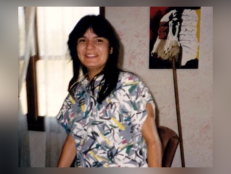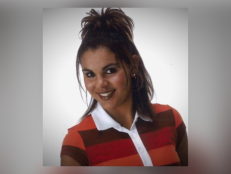Anonymous Caller Cyberstalks And Threatens Female Real Estate Agents Across U.S.
“His voice sounds to me like something out of a horror movie,” one victim says of the suspect.
![Katie Gambla [main] received many harassing and threatening phone calls from different numbers, which turned out to be from Andy Castillo [inset].](http://investigationdiscovery.sndimg.com/content/dam/images/investigationdiscovery/crimefeed/legacy/2022/05/devil-in-the-web-S1-E4-cyber-stalking.png.rend.hgtvcom.616.462.suffix/1653594740367.png)
Warner Bros. Discovery, Inc. (Screenshot from ID's "Devil in the Web")
A man recently accused of waging a campaign to harass female real estate agents across the country with threats of physical and sexual violence against them, and often their children, was later accused of murdering two women almost 20 years ago.
In May 2018, South Carolina-based realtor Katie Gambla received a phone call at her Beaufort office. “It was a phone number I didn’t recognize,” she recalled, noting that wasn’t unusual because of the nature of her career.
But Gambla realized the call could be a prank when the man on the line began to ask her about when she would be in the office and didn’t seem to be interested in talking about real estate.
Over time, Gambla began to receive more and more calls from the man— all from different numbers. “The calls quickly changed into explicit sexual and physical threats of violence,” she said.
The caller then began revealing he knew specific details about her life and work, which she took to mean he must be a local. When she stopped answering calls from unknown numbers, the man began leaving voicemails.
“His voice sounds to me like something out of a horror movie,” Gambla said, explaining that not knowing who was calling left her living in constant terror. “It really feels like the closest thing to someone raping you but they’re not there physically.”
Josh Dowling, an investigator with the Beaufort Police Department, determined the man was making the calls over the internet using a voiceover IP system that enabled him to hide his location. He obtained a search warrant for the voiceover IP company and obtained the call logs for a number the suspect used to contact Gambla.
Dowling discovered that hundreds of calls listed in the logs were to female real estate agents located in at least 12 states and 20 cities throughout the country, and he confirmed the women were also victims.
“The suspect’s behavior began to escalate over time,” Dowling said. “It went from exclusively phone calls to him sending text [messages] that incorporated explicit pornographic images, and it was a form of terrible cyber aggression and stalking because these agents were convinced that this person was nearby, that he was going to act on what he was saying. They had no idea what was coming next.”
Neither did investigators.
Detectives eventually narrowed down the caller’s location to an apartment complex in Lubbock, Texas, and, finally, to a suspect; tenant Andy Castillo.
On Jan. 6, 2020, authorities took Castillo into custody on a warrant and charged him in connection with the cyberstalking probe that involved about 120 realtor victims across the country.
While the case appeared to be solved, authorities were in for a shock after they obtained a DNA sample from Castillo and entered it into the Combined DNA Index System (CODIS), which contains DNA profiles developed from crime scene evidence.
In May 2020, DNA linked Castillo to the cold case murder of 21-year-old Cynthia Palacio in Lubbock in July 2003.
Almost a year later, on Dec. 1, 2020, a Lubbock County grand jury indicted Castillo on capital murder charges for the strangulation deaths of Palacio as well as the victim’s best friend, 21-year-old Linda Carbajal, who was found slain in northern Lubbock County in April 2004.
On Aug 27, 2021, Castillo was awaiting trial for the two slayings when he died at age 58 from COVID-19.
Investigators continue to question whether Castillo may be responsible for committing other violent crimes through the years.
For more information about this case, tune into Devil in the Web on May 26 on ID at 10/9c. or stream on discovery+.



![Amie Hoffman [left] and Dierdre O’Brien [right] were killed by the same man in New Jersey in 1982.](http://investigationdiscovery.sndimg.com/content/dam/images/investigationdiscovery/crimefeed/legacy/2022/11/murder-under-the-friday-night-lights-S2-E2.png.rend.hgtvcom.231.174.suffix/1669132998863.png)



![Hannah Graham [left] was found murdered on Sept 24, 2014; Morgan Dana Harrington [right] was found in January 2010. DNA has linked the two murders to Jesse Matthew Jr.](http://investigationdiscovery.sndimg.com/content/dam/images/investigationdiscovery/crimefeed/legacy/2022/09/charlottesville-police-department-hannah-graham-virginia-state-police-morgan-dana-harrington-09082022.png.rend.hgtvcom.231.174.suffix/1662659468172.png)

